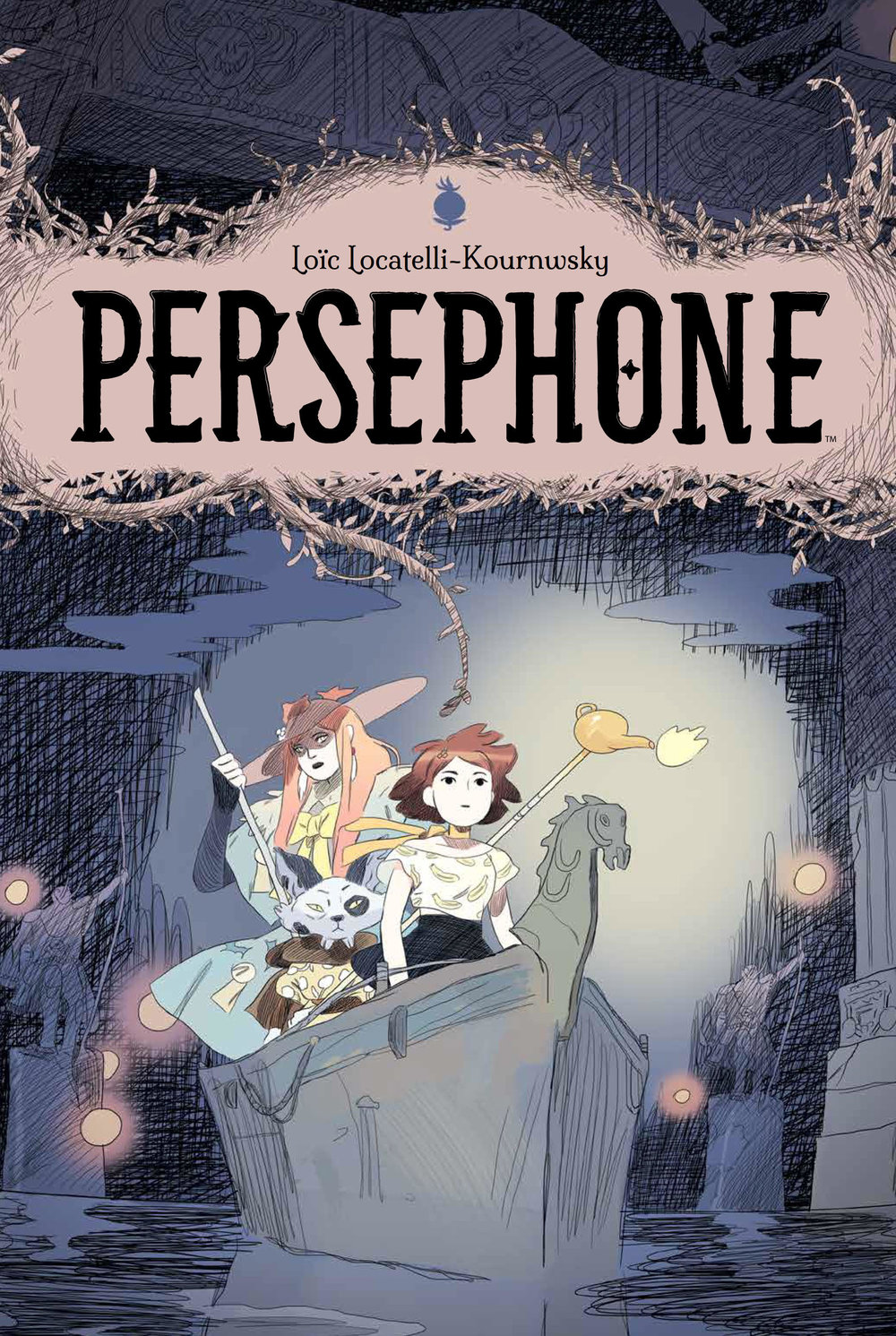Review: Persephone
By Kelly Gaines
It’s rare to find a refreshing retelling of Greek Mythology, but Boom Studios new title has managed to circumvent the cliche pitfalls and create something unique. Persephone blends elements of the queen of the underworld’s tale into a new setting- one with its own rich history and endearing cast. The story still frames an ancient power struggle between the beings that walk the earth and the menacing creatures confined to the Underworld, but Persephone, Hades, and Demeter have a new face- and a beautifully crafted new story about magic, family, and choice.
For anyone unfamiliar with the original myth, Persephone is the Greek Goddess of Springtime and part-time queen of the Underworld, a gig she got by being kidnapped by Hades and tricked into eating pomegranate seeds. Six seeds from an infuriatingly complicated fruit throw the entire ancient world out of whack. Persephone’s mother, Demeter a.k.a goddess of the harvest and fertility, Demands that her daughter is returned to her and accomplishes what I like to think of as the first timeshare. Persephone spends six months out of the year (spring and summer) with her mother, but when the six months are up, Persephone is brought back down to the Underworld to live with her new husband, Hades, and Demeter’s sorrow brings about fall and winter. It’s a simple concept, one that raises a lot of questions about the gods and consent (well, not as many as Zeus’ actions do- seriously, look that up). It’s a classic myth that Persephone breathes creative new life into, as long as you’re willing to read a loose retelling.
This version of Persephone takes place in a land protected by mages. Magic abilities are passed from parent to child and help bring order to an otherwise difficult society. The Underworld exists on the other side of a portal, one that was sealed after Hades flew into a delusional rage and waged war against outsiders following the mysterious death of his beloved wife. Demeter, one of the most powerful witches in the realm, combats Hades' forces as years go by and strives to keep her people safe- Especially her thirteen-year-old daughter Persephone. Though magic is traditionally inherited by the children of mages, Persephone does not have powers. It’s a disappointing trait for the teenager, and equally disappointing for the townsfolk that expects her to be their protector someday. It wouldn’t be a very good story if the status quo didn’t change, and before long Persephone has more to worry about than the judgment of her peers. The past between Hades, Demeter, and the worlds they occupy is catching up to them- and Persephone is caught in the crosshairs.
I went into this reading believing that my familiarity with the myth would make the plot predictable. I was pleasantly surprised. Persephone changes enough to be a completely new adventure but keeps enough of the original myth’s core concepts to be recognizable. Will you completely grasp the scope of this fantasy world on your first read? Probably not. Fortunately, they’ve included a map and introduction to help guide readers to the heart of the story. I’ll admit that there are a few concepts that still confuse me in terms of the function of these different realms and what exactly counts as magic (plant growing powers and witches hats, yes. Talking animals, no?), but the read was an enjoyable page-turner just the same.
As overplayed as myth and fairytale retellings may feel right now, I’m still a sucker for them. Persephone feels fresh despite being based on a story that’s been told for thousands of years. This is about as lighthearted as the Underworld can get, and as beautiful as it can possibly look. I wouldn’t call this a story for all comic fans, but if your tastes range closer pastel colored magic than gritty superhero stories, it’s certainly worth a read.
Score: 5/5
Persephone
BOOM! Studios


